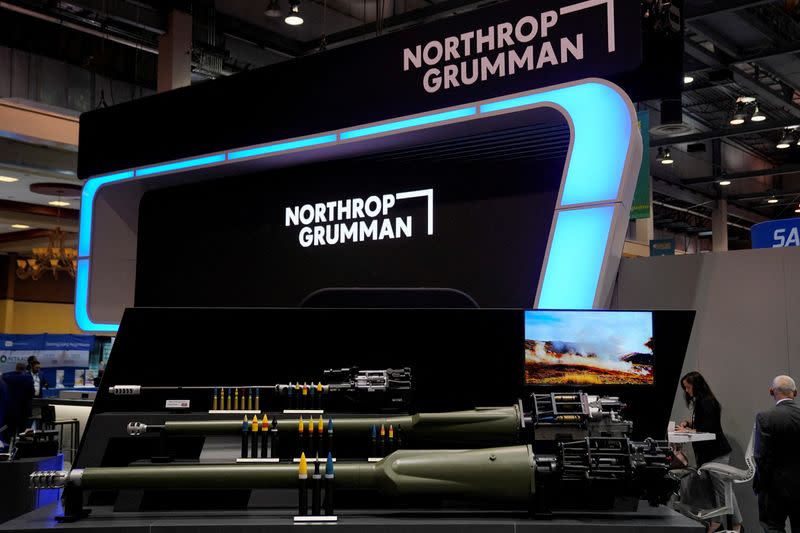Northrop Grumman pulls out of UK narrowband military satellite tender - FT

LONDON (Reuters) - U.S. defence company Northrop Grumman has pulled out of a competition to supply narrowband military satellite communications for Britain's armed forces, the Financial Times reported on Friday.
Northrop had partnered with Airbus in its bid.
The two companies last month agreed a strategic partnership to bid for the wideband component of Britain's SKYNET military satellite communications programme, according to an Oct. 23 statement.
The FT said Northrop's withdrawal from the narrowband part of the tender left a partnership between Thales Alenia Space and Thales UK as the only contender in the race.
Northrop told the FT: "After thoroughly reviewing the invitation to negotiate for the SKYNET narrowband military satellite communications programme, the company has decided to withdraw from procurement".
A UK Ministry of Defence spokesperson said: "SKYNET 6 will deliver the UK's next generation of military satellite communications and the narrowband and wideband procurement processes are ongoing."
(Reporting by Paul Sandle in London and Mike Stone in Washington; Editing by Josie Kao)

 Yahoo Finance
Yahoo Finance 